Welcome to the 77th edition of Trade War.
China shocks investors with a crackdown on the $120 billion private education business. And fears grow that the VIE investment structure used widely by China’s tech companies may be in Beijing’s crosshairs now.
China warns the U.S. to correct “wrong policies” and Biden calls for a stronger “Buy American” policy. And the new Chinese ambassador to the U.S. is known for his brash and acerbic style.
Finally, I argue in an Atlantic Council report that Xi Jinping has adopted a risky new “Politics in Command Economy."
If educating Chinese kids isn’t safe, what is?
Beijing announced it will tightly restrict China’s huge private education business, claiming it has been “hijacked by capital,” sending stocks of companies like New Oriental and Tal Education plunging, reports Bloomberg News.
“The new regulations ban firms that teach school curriculums from making profits, raising capital or going public,” writes Bloomberg.
“I see panic selling in the market now as investors are pricing in a possibility that Beijing will tighten regulation on all sectors that have seen robust growth in recent years,” Castor Pang, head of research at Core Pacific Yamaichi, told Bloomberg. “I don’t think investors can do any bottom fishing at this point. We don’t know where the bottom is.”
“Hard to overstate the implications of this move. Beijing just wiped tens of billions of dollars off the portfolio values of some of the world’s biggest investors with very little official notice. If educating Chinese kids isn’t safe, what in China is?” tweets Bloomberg’s David Ramli.

The cage bars are closing in
“The Chinese Communist Party’s affair with capitalism is rapidly souring,” writes Reuters Breaking Views’ Pete Sweeney.
“Beijing is forcing the country’s $120 billion private tutoring industry to turn non-profit, an unprecedented move that wiped out billions of dollars in value at a swathe of listed Chinese firms,” he writes.
The latest move against a major private industry aims to deal with both China’s low birth rate and growing wealth gap - the high cost of education has been an obstacle to raising children and has constrained family finances.
“Chen Yun, one of the architects of Chinese economic reforms in the 1980s, once said free markets should be contained like a bird inside a cage,” Sweeney writes.
“Having underinvested in education and indulged lazy state-owned banks, the government is now suppressing their private competitors and mulling seizures of intellectual property in the name of the public good. Next could be healthcare, another area where public good and private profit overlap. The cage bars are closing in.”

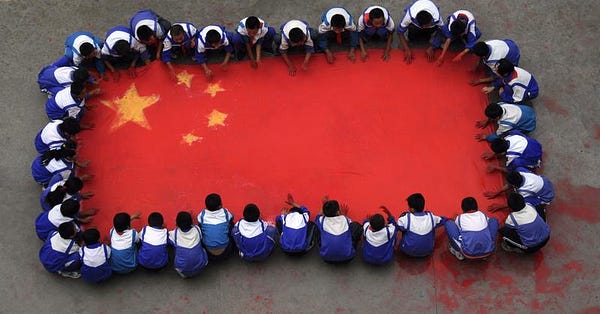
May be left with no biz model at all
The dramatic move against private tutoring companies is of a different, far more serious scale than other recent crackdowns against business, writes Bloomberg Opinion’s Tim Culpan,
While earlier crackdowns against Alibaba, Ant Group, Didi Global, and Tencent were aimed at specific issues including data security and anti-competitive behavior, “big education providers are under fire for their core operations: charging money and profiting from teaching schoolchildren,” writes Culpan.
“Big Tech had the option to adjust course and pay a fine. The giants in tutoring — TAL Education Group, New Oriental Education & Technology Group and Gaotu Techedu Inc. — may be left with no business model at all.”

Peddled anxiety, defied public welfare
Tal Education and New Oriental, two of China’s largest private tutoring companies, have cancelled their earnings releases amid the regulatory storm, reports the South China Morning Post.
“The companies separately announced the cancellations on Friday, citing “recent regulatory developments” as the reason, without further elaborating,” writes the Hong Kong-based paper.
At a press conference, China’s ministry of education said the number of institutions in private tutoring almost equalled the number of public schools. Without the new restrictions, the private companies would “form another education system” and disturb the “normal order” of public schools.”
“It also said that the industry has been overcapitalized, which has led to “excess publicity” that has “peddled anxiety” among citizens and defied the public welfare nature of education,” reported the Post.
VIEs: legally ‘on quicksand’
Investors are worrying the crackdown on private tutoring could spread to threaten an investment structure known as a VIE, commonly used by China’s big tech companies, reports the Financial Times.
The ongoing crackdown “has included a ban on companies using this structure, known as the variable interest entity (VIE), raising the spectre of a broader disaster for some of the world’s biggest investors,” reports the Financial Times.
“The ban and an ambiguous warning that existing education VIEs will be “rectified” have triggered fears that other VIEs could be hit, such as Alibaba, Pinduoduo and JD.com,” writes the Times.
“Chinese VIEs, usually based in tax havens such as the Cayman Islands, are essentially holding companies designed to get around strict rules that forbid foreign investors from any ownership over key sectors, such as tech. In theory, they entitle US shareholders to the economic benefits flowing from a Chinese company while limiting their operating control of the business.”
“If I had any money in any sort of VIE right now, I would be very unhappy,” Dan Harris, an attorney at Harris Bricken said. “It is very unlikely they [investors] get all of their money back. Legally they are on quicksand.”

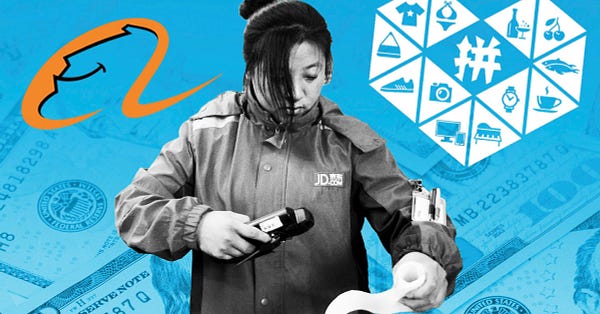
Don’t say we didn’t tell you..
“In case anyone still thinks that the crackdown on private education companies came as a total surprise: President Xi openly warned you all 3 years ago!” tweets trade expert and law professor Henry Gao.

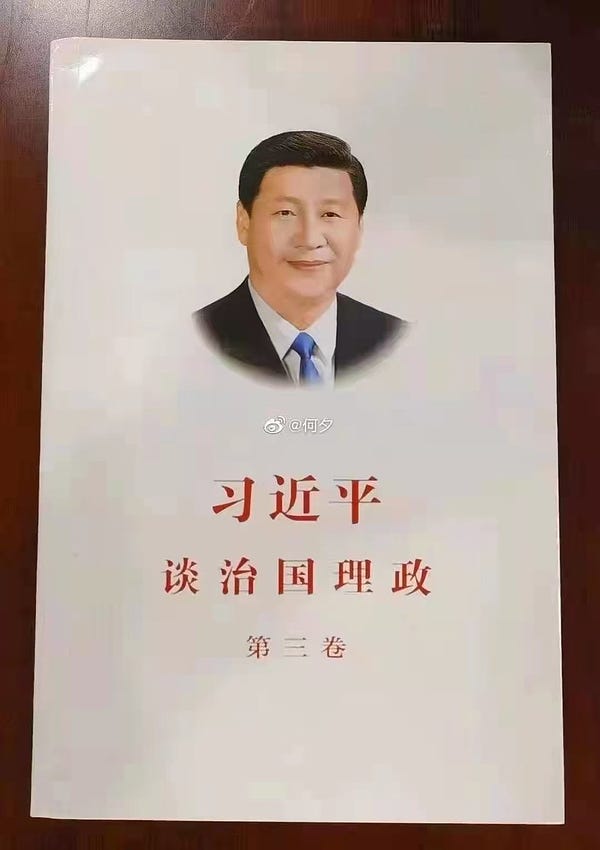
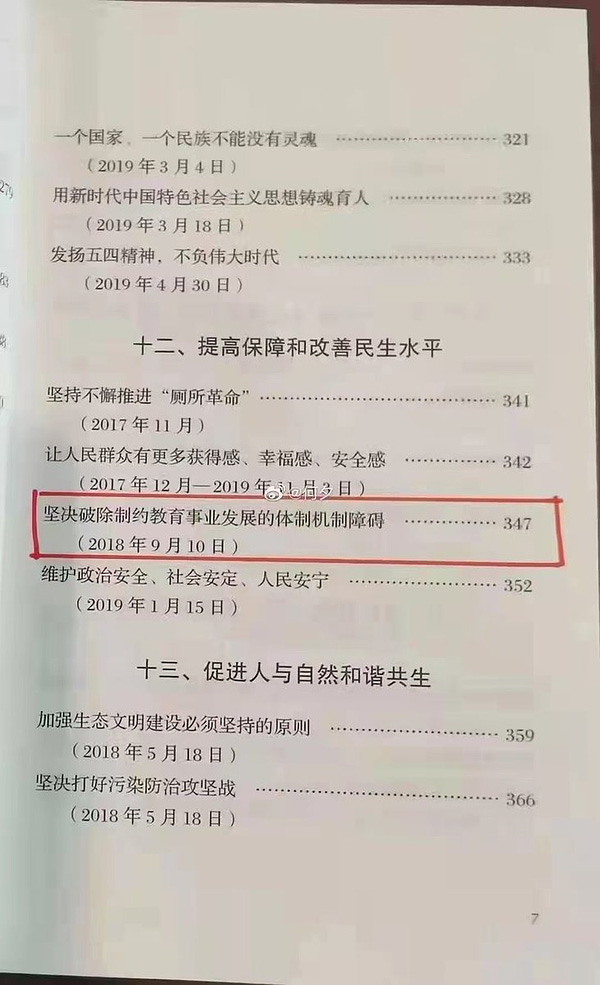
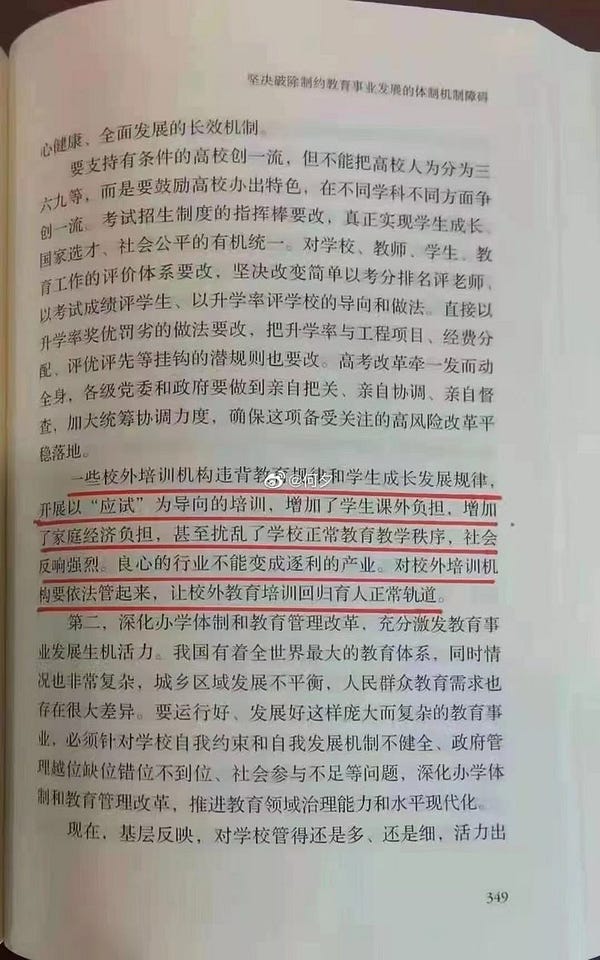
Testing obsession crushing creativity
Here’s what former colleague Hui Li and I wrote in June of 2018 in a Bloomberg Businessweek feature:
“TAL, the nation’s largest tutoring outfit [has turned] into a major money spinner. But that position has been put at risk by the Chinese government’s crusade to cut back on academic stress and foster childhood creativity. A primary target: the kind of extracurricular drilling TAL provides.“
“China’s Communist Party leaders, including President Xi Jinping, worry that the nation’s testing obsession is crushing the creativity that could yield China’s own Steve Jobs. Leaders also say they want to keep wealthier families from gaining an edge through after-school enrichment.”

US must correct “wrong policies”
In a move reminiscent of the notorious “fourteen grievances” Beijing raised with Australia, Chinese officials gave visiting U.S. deputy secretary of state Wendy Sherman two lists demanding Washington confront “wrong policies” and “key cases of concern.”
To address the “wrong policies” the U.S. must lift visa restrictions on party members, their families, and Chinese students; revoke sanctions and lift the U.S. extradition request for Huawei executive Meng Wanhou; stop the suppression of Confucius Institutes and the listing of Chinese media as "foreign agents," tweets Politico’s Stuart Lau.
As for "key cases of concern” for China, those include: “Asia-phobic trends in US; anti-China sentiment; Americans' violent attack on China's diplomatic missions; Chinese citizens' unfair treatment in US; rejection of visas for Chinese students.”

China must disclose government interference
Meanwhile, a top Securities Exchange Commission has ordered that U.S.-listed Chinese companies must disclose government interference risks, reports Reuters.
"Public companies must disclose significant risks which, for China-based issuers, may sometimes involve risks related to the regulatory environment and potential actions by the Chinese government," SEC official Allison Lee told Reuters. "We should always be focused on ensuring investors are fully informed of material risks, such as the risks we've seen recently related to China."
"U.S. regulators must insure that American investors and workers are protected from the sort of non-market behavior that is leaving American investors scorched," Senator Bill Hagerty told the news service.
Biden says will ‘Buy American’
On a visit to Pennsylvania where he met United Autoworkers Union members, Biden called for a ‘Buy American” policy he said would help U.S. workers, reports Reuters News.
Standing in front of a backdrop of Mack trucks, Biden said ‘buy American’ in recent years has become a “hollow promise,” and that his administration “is going to make Buy American a reality."
New rules “would expand existing "Buy American" provisions, which apply to about a third of the $600 billion in goods and services the federal government buys each year,” Reuters reports. “If approved, they would raise the minimum U.S. content for manufactured goods from 55% to 60% immediately, and then to 65% in 2024 and 75% in 2029.”

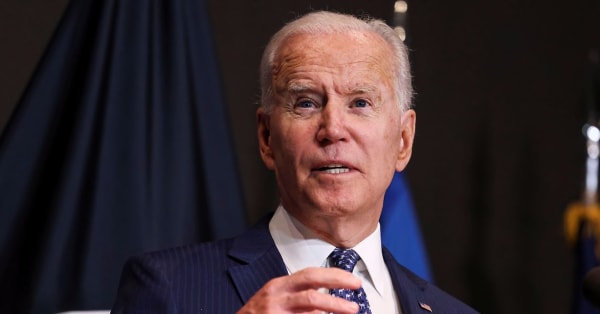
Different worlds now: far less friendly, even hostile
Qin Gang, China’s newest ambassador to the U.S., has long been known for a more “acerbic style of communication” with the foreign press and diplomats, report NPR’s Emily Feng and John Ruwitch.
“As the new Chinese ambassador to the United States, Qin Gang, 55, will need to straddle two sometimes-contradictory priorities: satisfying an increasingly nationalistic audience back home while being placatory and diplomatic toward an American political landscape that has become increasingly hostile to China,” reports NPR.
"We were seeing a transition — in the person of Qin Gang — away from this earlier, sometimes almost amiable relationship between the foreign ministry and the foreign correspondents based in China," says Dexter Roberts, who reported for more than two decades in China with Businessweek and Bloomberg, starting in the 1990s. "It's just different worlds now, and I do see him as sort of a part of that transition towards a new or far less friendly, even hostile relationship."

Notable/In Depth
After years of copying Silicon Valley, China now is aiming to create its own much more government-driven tech industry model, writes Bloomberg Businessweek.
Far more world leaders visit China than the U.S. writes Neil Thomas for the Lowy Institute. In 2019, world leaders made 79 visits to China; the U.S., only 27.

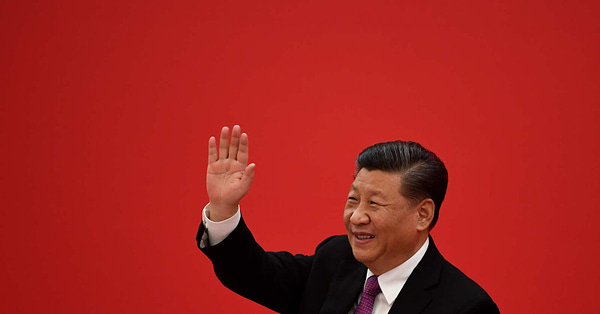
The “Northkoreanesque” Tibet reception for Xi, as shown in this video, is quite something.


Xi Jinping’s politics in command economy
Here is the Atlantic Council report I put some months of research and writing into, which is a deep dive into “Xi Jinping’s Politics in Command Economy.” Please give it a read.


Pushback against facial recognition tech
A fascinating piece by the Washington Post’s Eva Dou that looks at how Chinese are pushing back against facial recognition technology, as well as cites my ‘politics in command economy’ report.

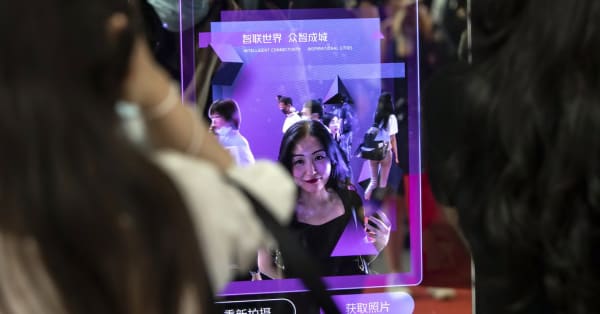
Politics in Command
Also citing my new report, Bloomberg’s Andrew Browne examines how the crackdown on big tech companies shows China under Xi is moving into a new era of “politics in command.”

Get some shade…
When it’s hot in the Rocky Mountain West.




